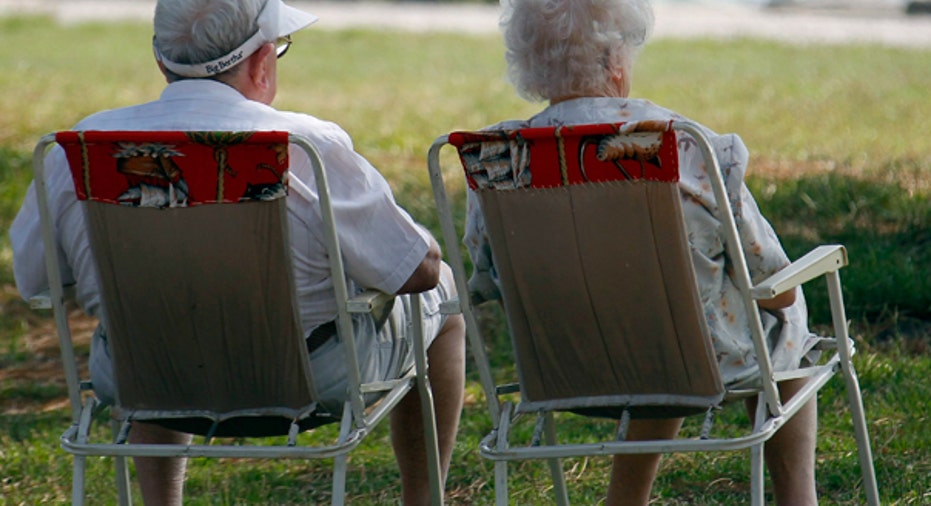Tips for Boomers to Survive Life's Transitions

“The Boomer” is a column written for adults nearing retirement age and those already in their “golden years.” It will also promote reader interaction by posting e-mail responses and answering reader questions. E-mail your questions or topic ideas to thefoxboomer@gmail.com.
Many of us boomers remember the old adage: “The only thing certain in life is death and taxes.” But in today’s world, with so many baby boomers nearing or in retirement, it seems to be so much more complicated than that.
Boomers tend to avoid touchy topics regarding their own and family members’ financial and health future. Questions like, "what will happen when mom needs to go to a nursing home?” or "what are we going to do with dad's stuff when he passes?" are often not asked. But we can’t ignore these scenarios forever; unfortunately they aren’t a matter of "if," but of "when."
Once boomers hit a certain age, life changes seem to come rapidly: leaving the work force, relocating to a smaller home or retirement community and learning to live without a steady paycheck. When faced with these life-changing events, it can be overwhelming, and boomers feel inundated not knowing when and where to start, and how to handle the changes emotionally and fiscally. On top of their own life changes, boomers are increasingly finding themselves dealing with an ailing parent and making life-alerting decisions for them.
There are companies that help individuals prepare for these "triggering events." John Buckles, the founder of Caring Transitions, a company that helps families with seniors move by providing management and transitioning services, says more boomers are starting to realize that their current living situation is not conducive to their situation.
Buckles, who lost his father at a young age, says boomers don’t like to acknowledge that they may need to change their living situation, and tend not to plan ahead regarding these issues.
I reached out to Buckles with the following questions for all of us boomers that will likely face a transition period that will affect our lives and the lives of our loved ones. Here is what he had to say:
Boomer: What life stages will boomers go through, and how can they prepare?
Buckles: Boomers are going through different life stages, it could be a loss of a loved one or needing different living accommodations--the situations vary. What we find is people are doing everything possible to stay where they are currently living; they are more comfortable being there then the unknown. For some, their current living situation is acceptable, but everyone needs to plan for the “what ifs.”
Too many people think they will not experience a medical issue that might force them out of their home. They think: “that this is not going to happen to me, I will leave it for somebody else.” We are living longer because of medical advancements; we tend to go through a declining stage for a longer period of time and we need to plan for this. The venue of where we live must change to support our current life situation.
As boomers go through their life stages, they need to document their belongings and where they want them to go after they pass while they have physical and mental ability to do so. You can do this in small chunks--take the time to document what you want done with your things, what different items mean to you, and who should get what and why. Don't try to do your entire house at one time, take it a room at a time.
Boomer: How should boomers talk to our aging loved ones when triggering events occur?
Buckles: This is a touchy subject because everybody lives in a constant state of denial. We never see ourselves aging and we never see ourselves becoming unable to make decisions for ourselves.
A great way to approach this subject, particularly with people that are facing challenges or are older, is to talk about it hypothetically. Don’t say: “Gee mom, what do you want done with this stuff?” Approach it more like, “What do you think someone’s options would be with this or that? Put it in a third party sense so that it is non-threatening to that individual.
It is a real challenge to start that conversation but often, particularly with seniors, if they see friends or relatives of theirs passing on, it is a great opportunity to talk about what could be done with these things.
Boomer: How can we properly prepare ourselves for these unexpected events that can force family members to make difficult and emotional decisions?
Buckles: We have to be honest with ourselves. We are a nation of consumers and keepers. We tend to consume and we tend to keep everything that we bought and owned. It is taking that aggressive step upfront to anticipate that things are going to change, things will happen to us. The good news is that if it doesn't, at least we were prepared. A lot of people have that unfortunate perspective of “if I talk about or think about something happening, it is going to happen to me.” What if you are not in a position to communicate or pass on what is going to happen? It is really more a matter of taking baby steps along the way to pass on what your wishes are for the things you hold sacred, not wait until it is too late. Preparing yourself is really focusing on what is important to you, don't worry about the value of the item.



















